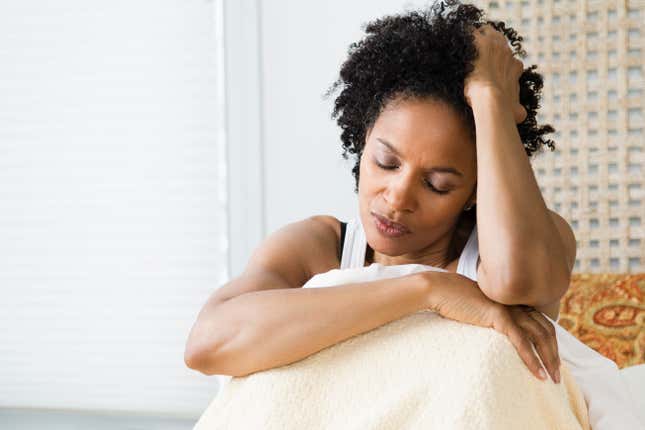
According to the American Psychological Association, the demand for mental health treatment has steadily increased since the COVID-19 pandemic, with over 70 percent of providers saying their patient waitlists are longer than ever. But while more people are talking about mental health these days, many Black women believe they are being left out of the conversation and struggle to find resources and support that meets their unique needs.
In June, EXHALE, the first emotional well-being app designed for Black women, released The State of Self-Care for Black Women, a study which included 1,005 Black women from across the country, representing various ages and socioeconomic groups. The comprehensive survey was designed to examine how we look at our mental, emotional, and physical health.
When asked what areas of self-care are most important, reducing stress was top of mind. Eighty percent of the female respondents said mental self-care was their number one priority, while 59 percent put physical self-care first.
It should come as no surprise that work was a major source of stress for the Black women in this survey. And for most of them, the struggle to find work-life balance is real. Over 60 percent said they wear themselves out trying to excel in the workplace and manage their personal responsibilities.
And while they are burning the candle at both ends, cultural sensitivity is one of the biggest obstacles to them finding the support they need. Over 70 percent of the Black women who responded to the survey said access to resources that address their unique experiences would make them more inclined to use mental health resources.
The results show a clear demand for support. But the Black women in this survey say the supply is clearly lacking and cited provider bias as an issue. Over half said they feel more comfortable with a Black healthcare provider. But with the Association of American Medical Colleges reporting that only 6 percent of doctors in the United States identify as Black, there just aren’t enough to go around.
Black women want tools designed to address their specific needs, and they are willing to pay for them. Sixty-seven percent of survey respondents are willing to spend more than 5 dollars per month on emotional well-being apps or tools created by Black Women, for Black Women. EXHALE founder Katara McCarty hopes her app can be an important step to proving Black women with the tools they need.
“As Black Women, we’re surrounded with messages telling us we’re strong and resilient enough to manage stress. But this survey proves that we are negatively impacted by a lack of necessary support,” Katara McCarty in a statement announcing the survey results. “Black Women cannot fully heal without being fully seen. We need culturally appropriate resources and tools that address the effects of racial trauma on mental, emotional, and physical health.”

